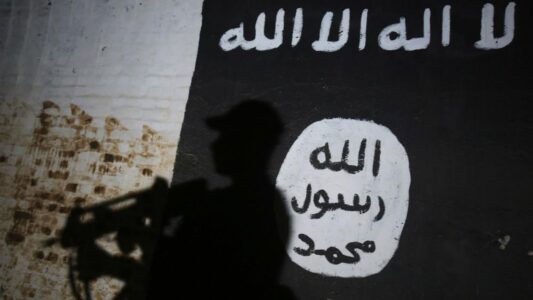
Islamic State-linked men are buying release from Syrian-controlled prisons
Prisoners accused of links to the Islamic State [IS] group have been able to buy their release from Kurdish-led jails in northeast Syria, according to a news report Monday.
Two men who spoke to The Guardian revealed they were able to pay $8,000 plus bribes to the Syrian Democratic Forces (SDF) as part of a “reconciliation” scheme to leave prison.
Their accounts were corroborated with a copy of a release form signed by prisoners declaring they would not rejoin army organisations and leave parts of Syria under SDF control – as well as by locals in Raqqa, denied justice for murdered family members.
“I was arrested in Baghuz [IS’s last stronghold] after being injured in an airstrike and turning myself in with other fighters during a ceasefire in March 2019,” said Abu Jafar, a former security officer for IS-held Raqqa.
Jafar paid the $8,000 official fine as well as another $22,000 in bribes to various SDF officials to secure his release.
“For around two years, we were waiting for a court or something to clarify our destinies. After a point, we knew we had to find our own way to get out of that place,” he said.
Abu Muhammad, who led a unit in battle against the SDF, was arrested in 2019 but later paid for his release in January this year.
“The releasing process wasn’t easy, but after contacting many SDF leaders my family was able to get me out of jail after paying $14,000 in bribes in addition to the official $8,000 to the SDF’s public finance department,” said Muhammad.
SDF have denied this practice takes place.
“SDF has previously freed some prisoners who had links with IS [through tribal reconciliation], however, their hands were not stained by blood of innocent civilians and [they] didn’t do any crimes. They were either employees in IS-run offices or were forced to join IS,” said SDF spokesperson Farhad Shami.
The family members of the two men were also freed from Al-Hawl detention camp under the release deal, according to Monday’s report.
They then travelled to Idlib province and crossed into Turkey.
One claimed he never bought into IS ideology, and the other said he didn’t realise the group would grow to be so violent.
Muhammad also alleged that conditions in jail amounted to torture, which the SDF has denied.
“SDF guards used to hang us to the roof of investigations rooms to torture us, and leave us hungry and thirsty. They did the same thing that we did to the people we arrested when we were in charge as IS leaders,” he said.
It has become “common knowledge in places such as Raqqa” that men with links to IS can buy their release from prison, according to The Guardian.
One local resident, whose mother was murdered by IS after being accused of spying, said he was so frustrated with the situation he was contemplating taking matters into his own hands.
“Today we know who [the released IS members] are. Sometimes we see them in Raqqa’s streets, but without a real judicial system, we cannot prove that. One day, we will take our revenge into our own hands.”
It is estimated that around 10,000 men with alleged links to IS are held in Kurdish-led jails in northeast Syria.
Source: Al Araby





